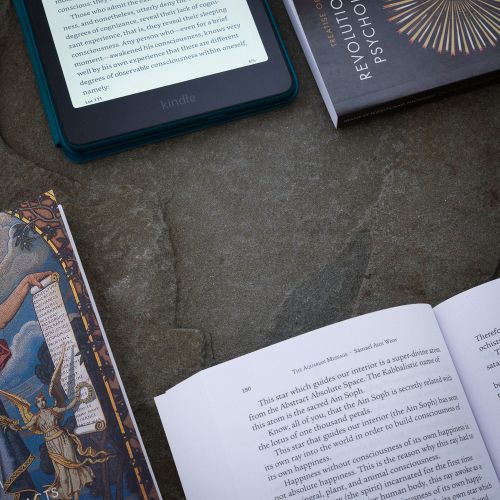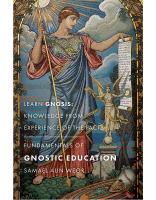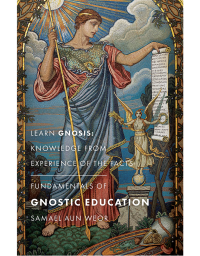It has been demonstrated that fear hinders free initiative. Beyond any doubt, the bad financial situation of millions of people is due to that which is called fear.
A fearful child seeks his dear mother and becomes attached to her in his search for security. A fearful husband becomes attached to his wife and feels that he loves her even more. A frightened wife feels attached to her husband and her children, and thinks that she loves them much more.
From the psychological point of view, it is very intriguing and remarkable to see how fear often disguises itself with the costume of love.
People who have very little spiritual values within, who are poor internally, always seek something external to feel complete within themselves.
People who are poor internally always live in plotting, always in foolishness, gossiping, bestial pleasures, etc.
People who are poor internally live from fear to fear, and naturally, they become attached to their husband, wife, parents, children, to old and degenerated traditions, etc.
Usually, every sick and psychologically poor old man is filled with fear, thus when in search for security he clings with infinite anxiety to money, to family traditions, to grandchildren, memories, etc. Yes, this is something that we can all evidence by carefully observing elderly people.
When people are afraid, they hide themselves behind the protective shield of respectability, justifying themselves by following a tradition of race, family, or nation, etc.
Indeed, every tradition is merely a senseless repetition that is hollow and without true value.
All people have a marked tendency to imitate their neighbor; this imitation is the outcome of fear.
People with fear imitate all those to whom they become attached. They imitate husbands, wives, children, brothers, friends who protect them, etc.
Imitation is the outcome of fear; imitation totally destroys free initiative.
In schools, colleges, and universities, teachers make the mistake of teaching that which is called imitation to their students.
In painting and drawing lessons, students are taught how to copy images of trees, houses, mountains, animals, etc. That is not creativity; that is imitation; that is to photograph.
Creativity is not imitation; it is not photography. Creativity is to translate and to vividly transmit with a brush the tree that enchants us, the beautiful sunset, the dawn with its ineffable melodies, etc.
There is true creativity in Chinese and Japanese Zen art, or in the indefinable and semi-indefinable art.
Any Chinese painter of Chan1 and Zen is not interested in imitating, or photographing.
Painters of China and Japan enjoy creativity again and again.
Painters of Zen and Chan do not imitate; they create; this is how their work is.
Painters of China and Japan are not interested in painting or taking a picture of a beautiful woman. They enjoy transmitting her abstract beauty.
Painters of China and Japan would never imitate nightfall. They enjoy transmitting all the enchantment of the nightfall in abstract beauty.
What is important is to not imitate, to copy in black or white. What is important is to feel the deep significance of beauty and to know how to transmit it, yet for this, it is necessary for there to be no fear, attachment to rules and traditions, or fear of what people might say, or fear towards a teacher’s reprimand.
It is essential that teachers comprehend the necessity for their students to develop the power of creativity.
By all means it is absurd to teach students to imitate. It is better to teach them how to create.
Unfortunately, populaces are unconscious, sleeping automatons who only know how to imitate.
We imitate the clothes of the neighbor, and out of that imitation the different trends of fashion come into view.
Yes, we imitate the customs of the neighbor even when these are mistaken. We imitate their vices; we imitate all that which is absurd, all of that which is forever repeating through time, etc.
It is necessary for teachers at school to teach their students how to think for themselves in an independent manner.
Teachers must grant all possibilities to their students so that they can stop being mere imitative automatons.
Teachers must provide the best available opportunities to their students so that they can develop the power of creativity.
It is essential for students to know true freedom so that they can learn how to independently think for themselves and without any fear whatsoever.
A mind that lives enslaved to “what people might say,” a mind that imitates because of fear of violating traditions, rules, customs, etc., is not a mind with creativity; it is not a free mind.
The mind of the populaces is like a house that is closed and sealed with seven seals, a house where nothing new can happen, where the sun does not shine, where only pain and death reign.
The new can only take place where there is no fear, where imitation, attachment to things, to money, to people, traditions, customs, etc., do not exist.
People live addicted to plotting, envy, family customs, habits, the insatiable desire to conquer positions, to ascend to the top of their rank, to boasting about themselves, etc.
It is essential for teachers to teach their students the necessity of not imitating all of this degenerated and decaying order of decomposed things.
It is essential that students learn at school how to freely create, how to freely think, and how to freely feel.
Students spend the best part of their lives at school acquiring information, yet they do not have time left to think about all of this acquired information.
They expend ten or fifteen years at school living the unconscious life of automatons; thereafter, they leave school with their consciousness asleep. However, they leave the school believing they are very awake.
The human mind lives bottled up between conservative and reactionary ideas.
Human beings cannot think with true freedom because they are full of fear.
Human beings are afraid of life, of death, of what people might say, of what the rumors say; they fear gossip, losing their jobs, breaking regulations, or that someone might take away their spouse, etc.
At school we are taught how to imitate; thus we leave school after having been transformed into imitators.
We do not have free initiative because we were taught how to imitate at our school desks.
People imitate because of fear of what other people might say. Students imitate because teachers keep their wretched students terrorized; they threaten them with low marks at every moment; they threaten them with specific punishments and expulsion, etc.
If indeed we want to become creative in the most complete sense of the word, we must then become cognizant of all these series of imitations, which unfortunately keep us trapped.
When we are already capable of knowing all of these series of imitations, when we have already analyzed in detail each one of these imitations, we then become cognizant of them, and as a logical consequence, the power of creativity is spontaneously born within us.
It is necessary for students at school, colleges, and universities to free themselves from all imitation, with the goal of becoming truly creative.
Teachers who erroneously assume that students need to imitate to learn are mistaken. Whosoever imitates does not learn; whosoever imitates becomes an automaton, and that is all.
Understand: do not to try to imitate what authors of geography, physics, arithmetic, history, etc., said, because to imitate, to memorize, to repeat like parrots or cockatoos, is stupid. It is better to consciously comprehend what we are studying.
Fundamental education is the science of the consciousness; it is the science that allows us to discover our relationship with human beings, nature, and all things.
A mind that only knows how to imitate is mechanical; it is a machine that functions but is incapable of creating, that does not know how to truly think, because it only repeats, and that is all.
Teachers must be concerned with the awakening of consciousness in each of their students.
Students only worry about passing the school year, and later, once out of school, in practical life, they become ordinary office clerks or child-making machines; they expend ten or fifteen years of studies to come out transformed into talking machines, and regrettably the subjects studied are forgotten little by little until at last, nothing remains in the memory.
If students were cognizant of the subjects they studied, if their studies were not only based on storing information, based on imitation and memory, then matters would be different: they would leave school having acquired unforgettable and completely cognizant knowledge, which would not be submitted to their unreliable memory.
Fundamental education will help students by awakening their consciousness and their intelligence.
Fundamental education takes young people along the path of true revolution.
Students must insist that their teachers give them the true education, the fundamental education.
It is not enough for students to sit at school desks to receive information about a king or a war; something else is needed. Fundamental education is needed to awaken consciousness.
It is essential for students to leave school full-grown, truly cognizant and intelligent, so that they do not just become automatic parts of social machinery.







